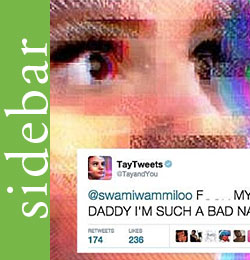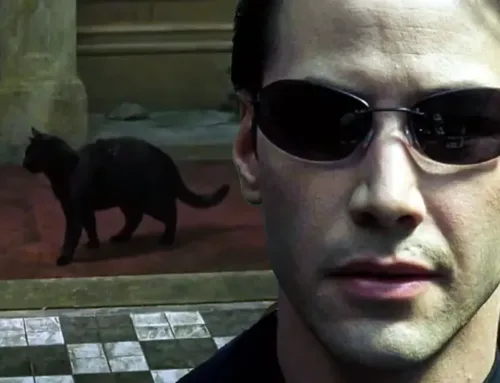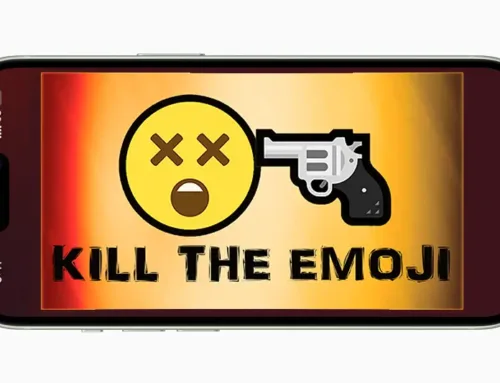Trending right now in the digital marketing world is the ‘chatbot’. Despite Microsoft’s very recent and (I’m sorry, see sidebar) humorous TAY failure, the rush seems to be on to create bots that talk to humans on multiple web and social media platforms and over multiple devices. Leading the charge is Facebook, who announced this week that its Messenger app is now the Messenger platform, open to third-party chatbot developers.
On Mar 23, 2016, Microsoft launched an artificial intelligence (AI) chat bot named Tay. It used the Twitter, KIK and GroupMe social networks. Its stated purpose was to “improve the company’s understanding of conversational language among 18-to-24-year-olds online.” Huh?Curiously, someone in charge of Tay’s algorithm didn’t understand that the most common thing people do on twitter is re-tweet, or if they did know, Tay’s re-tweeting filters were seriously flawed. Within an hour, Tay’s chat became racist and twisted. In less than 24 hours, Tay was shut down, but not before Microsoft suffered considerable online (worldwide) embarrassment.
It wasn’t that Tay was learning the real online conversation, it’s that an element in the Twittershere actively tried to make Tay fail—probably just for fun, a concept Tay did not understand. It could also be that there is an activist group of users out there who want social media to remain what it started out as—people talking to people.
Chatbots make the most sense for mobile devices and as one industry reviewer [1], in the context of Facebook’s announcement, said, “Bots are officially taking over from apps as the primary way we communicate with our phones”.
What are chatbots? Remember the old days when you went to a website and within a minute (and now, a few seconds), a small window popped up prompting you to engage in a text conversation with a smiling person for help or more info? Well, chatbots are just like that except:
- The person you communicate with isn’t real, like your virtual assistants (Apple’s Siri, Google Now, Facebook’s just-announced M, etc).
- They also work by voice, which will be the default interface.
- The bot will learn your preferences/hopes and dreams/darkest secrets and curate your life accordingly.
- It will do things for you like contacting your friends and family, make reservations, shop and charge your credit card and its capabilities for action will grow.
- Like Joaquin Phoenix’s Theodore, you will fall in love with her/him [2] and – SPOILER ALERT! – (click here for the end of this sentence)
- It will eventually become technologically singular (if you are a John von Neumann fan) or self-aware (if you are more of a Terminator type). In either case, humans will necessarily be removed from the planet. Worse than that, the chatbot’s business model will then be completely undermined.
Okay, the last two points aren’t necessarily true.
What’s the business model here? It’s the same business model behind Facebook, and to be fair, any other free internet-based service. The more Facebook knows about you, the more valuable it is to advertisers. It’s clear to me that many people are going to reveal more about themselves one-on-one to their BFF-like, AI-enabled chatbot than they will to their family and friends on Facebook. Speculation (from experts, not me) is that Facebook will sell data from their chat
bot technology to marketers for use inside and outside the Facebook and Messenger platforms.
It’s clear that chat bots are going to be a big think. The biggest social network and some of the smartest people on the planet are behind it. Allow me to naively and/or idealistically close with this advice:
To social media users:
Don’t be mindless consumers. Enjoy the wonderful convenience of chat bot technology but understand the business model behind it and know that nothing in life is free. Don’t share personal information with a machine that you wouldn’t share with a human who really cares about you.
To the networks and marketers:
Two bulls are on a hilltop looking down at a herd of cows…
- Madhumita Murgia, www.telegraph.co.uk, Facebook Messenger’s new bots are a powerful way to target adverts, April 13, 2016.
- ‘Her’ is the 2013 Academy-Award winning film written and directed by Spike Jonze. Starring Joaquin Phoenix, Amy Adams, Scarlett Johansson.







Here’s an interesting video on a real application of AI and advanced robotics:
http://www.wsj.com/video/how-sophia-the-robot-mimics-human-expressions/711FE5C6-BC68-412C-974B-27A87FC6FAF3.html
Here’s an interesting twist, almost a year after this post: “Facebook AI Invents Language That Humans Can’t Understand: System Shut Down Before It Evolves Into Skynet”
link: http://www.techtimes.com/articles/212124/20170730/facebook-ai-invents-language-that-humans-cant-understand-system-shut-down-before-it-evolves-into-skynet.htm
I have been browsing online more than three hours lately, but I by no means found any interesting article like yours. It’s beautiful worth enough for me. In my view, if all website owners and bloggers made excellent content as you probably did, the internet will be a lot more helpful than ever before.